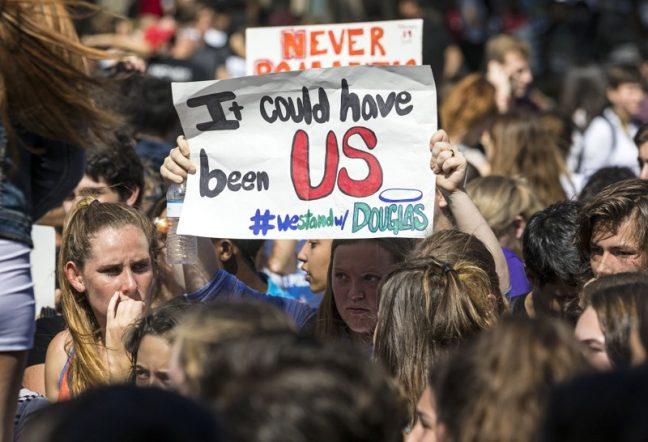I’ve been in Buenos Aires, Argentina for a grand total of three days and I’ve already witnessed my first protest. We were sitting in a building on one of the main roads in the city, taking a language placement test and all of a sudden, there was a man shouting about workers rights, firing off what sounded like fireworks. I went home that night and asked my host mom about it and she told me protests and strikes are very common throughout the country, but especially in Buenos Aires.
Turns out, Argentinian politics are almost as divided, dare I say polarized, as politics in the U.S. With a charged presidential race culminating in the somewhat surprising election of current president Mauricio Macri in December 2015 over former president Cristina Fernandez de Kirchner’s chosen successor Daniel Scioli, Argentinians today remain incredibly partial to either the previous government or the current one.
UW’s stance on high school walkouts admirable, but hypocritical toward current students
Kirchner was the first female president of Argentina and signed a law legalizing same-sex marriage in July 2010, making Argentina the first Latin American country to do so. Those in favor of the current government were very vocal during the presidency of Kirchner, opposing her nex tax system and other economic policies that ultimately failed to improve the country’s economy and resulted in high inflation. After leaving office in 2015, a series of indictments, regarding fraud and corruption, tainted Kirchner’s time in office.
Macri, the current president of Argentina, is part of a center-right Republican party and ran on a platform of “change” from the previous administration and the political polarization in Argentina. Young professionals, activists and businessmen largely support Macri, as he himself was a successful business tycoon prior to his involvement in politics. Macri’s economic plan for the country is much more trade-oriented than that of his predecessor, resulting in truckers protesting as recent as Feb. 21 in Buenos Aires. They oppose policies that are causing the costs of public transportation to rise.
Board of Regents free speech decision must be repealed immediately
This protest, like many others in Argentina, caused the postponement of daily life, as one of the largest roads in Buenos Aires was cordoned off, blocking traffic for miles outside of the city and making navigation within the city that much more difficult.
What is notable about the protests not only includes the size and veracity with which the Argentinians organize but the fundamental belief that protesting can and will bring about tangible changes in legislation and in society in general. This belief needs to be translated to the U.S., especially in an age where many people feel as though the government is not an accurate representation of what Americans stand for and the direction they want their country to be moving in.
The U.S. has a long history of protests and opposition to political decisions, from the abolitionists during slavery to the women who demanded the right to vote to the Civil Rights movement in the 1960s. Our very existence can be partially attributed to political dissidence and protest.
All of these movements, protesting, strikes organized by various groups and countless hours people spent demanding better treatment or more favorable legislation, result in tangible changes — amendments to the constitution, the end of slavery, the enfranchisement of half of the country. So it is ignorant and misleading to argue that protesting is fruitless or that only the whiners and the unemployed take to the streets in opposition to what is happening in our country right now.
Voices of change: UW political organizers seek to push protest tradition forward
Protesting is a fundamental right granted to those who are fortunate enough to live in the U.S. and it is something that has helped shape the fabric of our nation. Somewhere along the way, the value of organized demonstrations has been lost on many Republicans lambasting those demanding that a woman have the right to have an abortion or those opposed to the harmful immigration policies of the current administration.
But for a democracy to function properly, it is absolutely essential that the citizens are involved in the political landscape of the country. Protests are one way for people to show their engagement and their disagreement with how their representatives are voting. Silencing protests or unfairly casting them aside as ineffective is detrimental to democracy and to the progress of the U.S. and the world.
Aly Niehans ([email protected]) is a sophomore majoring in political science and intending to major in journalism.




















